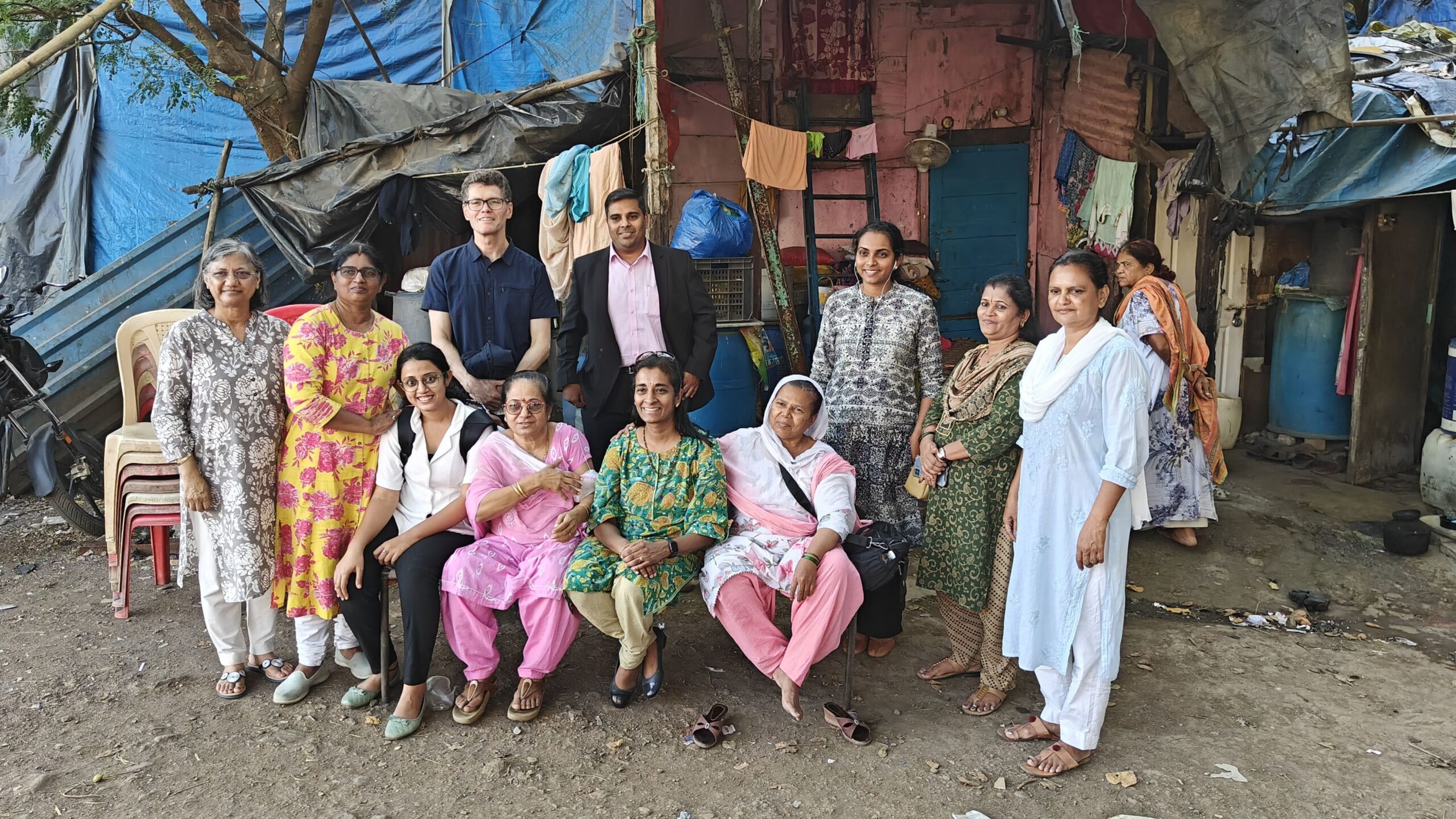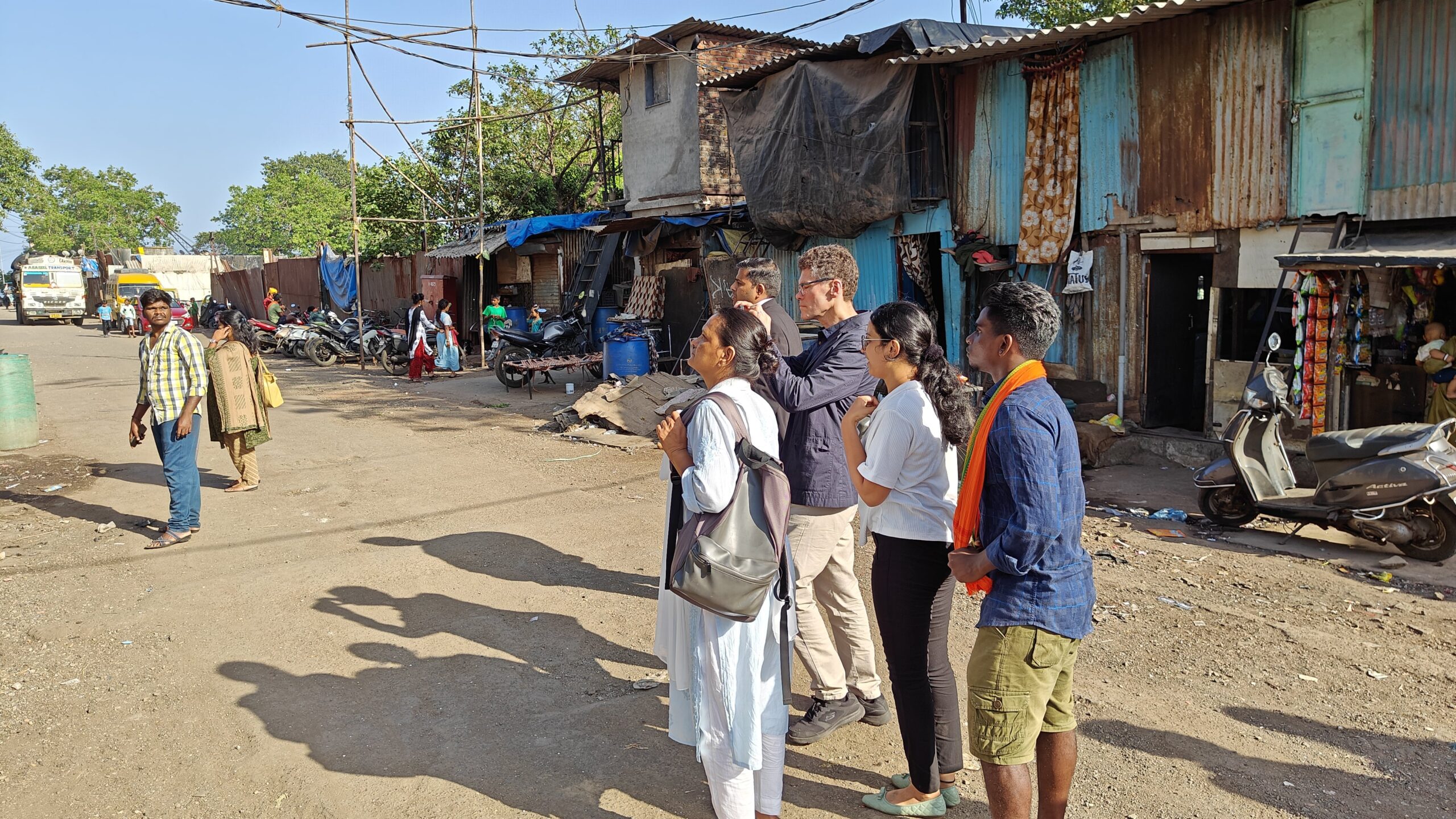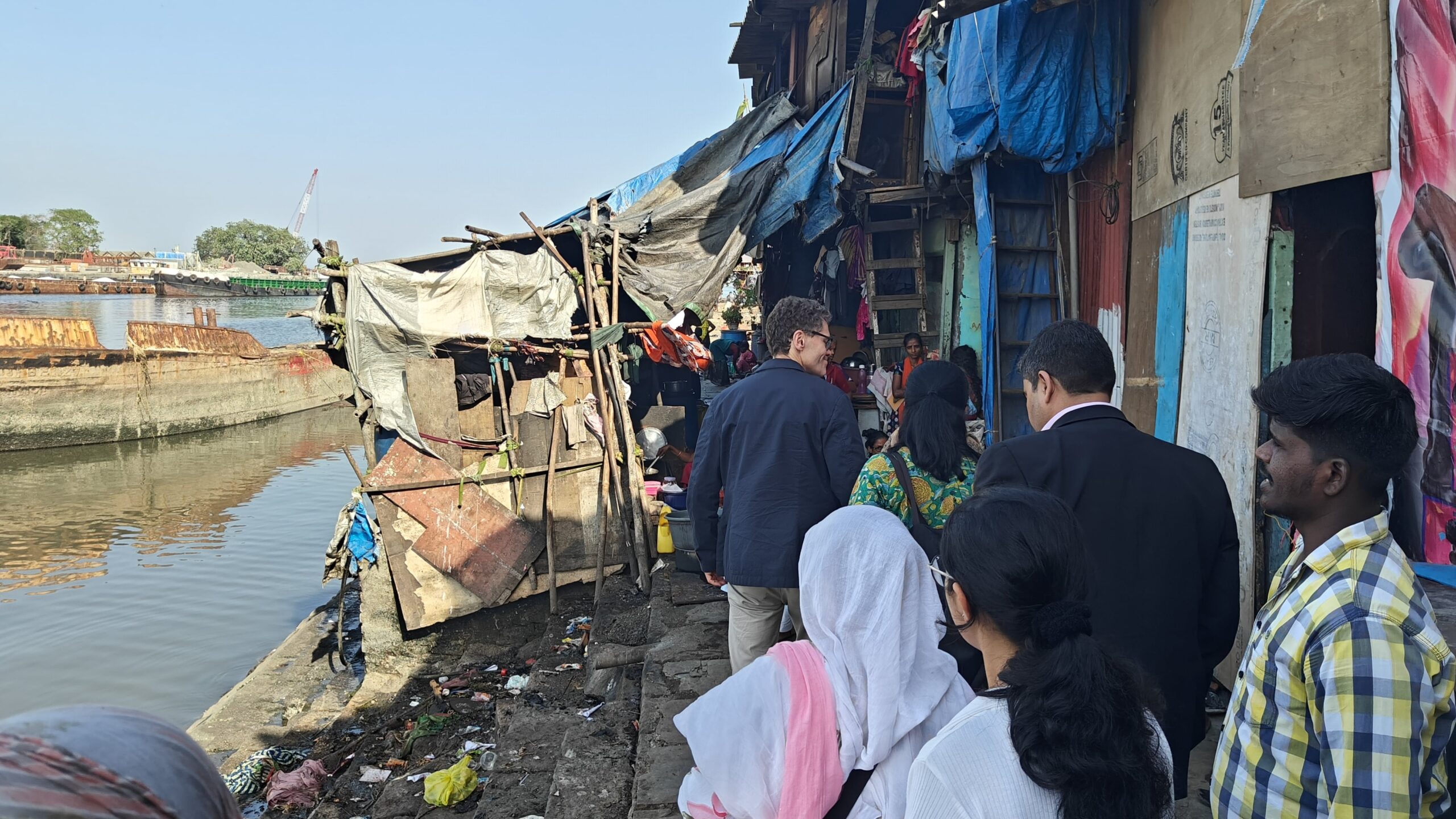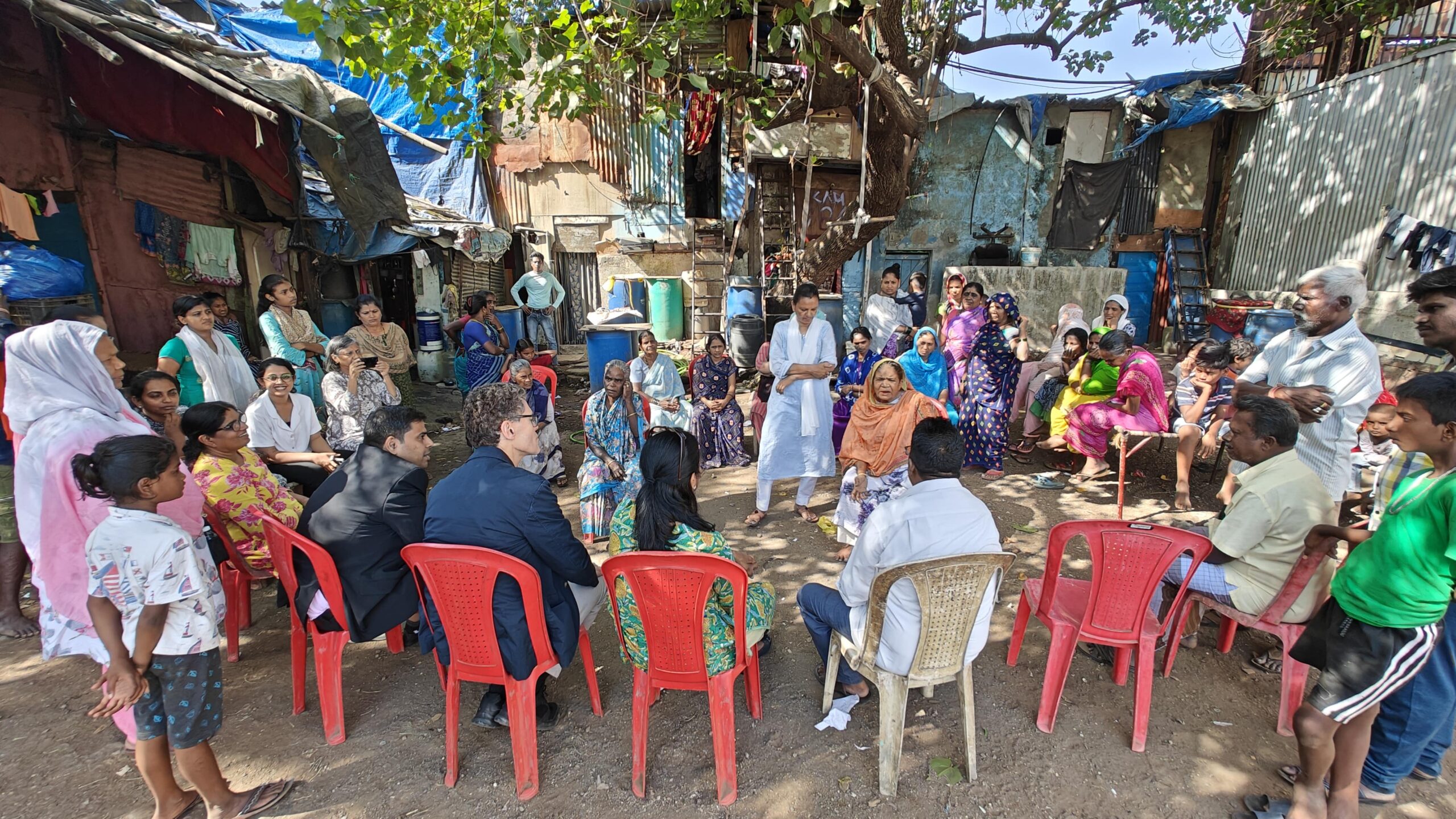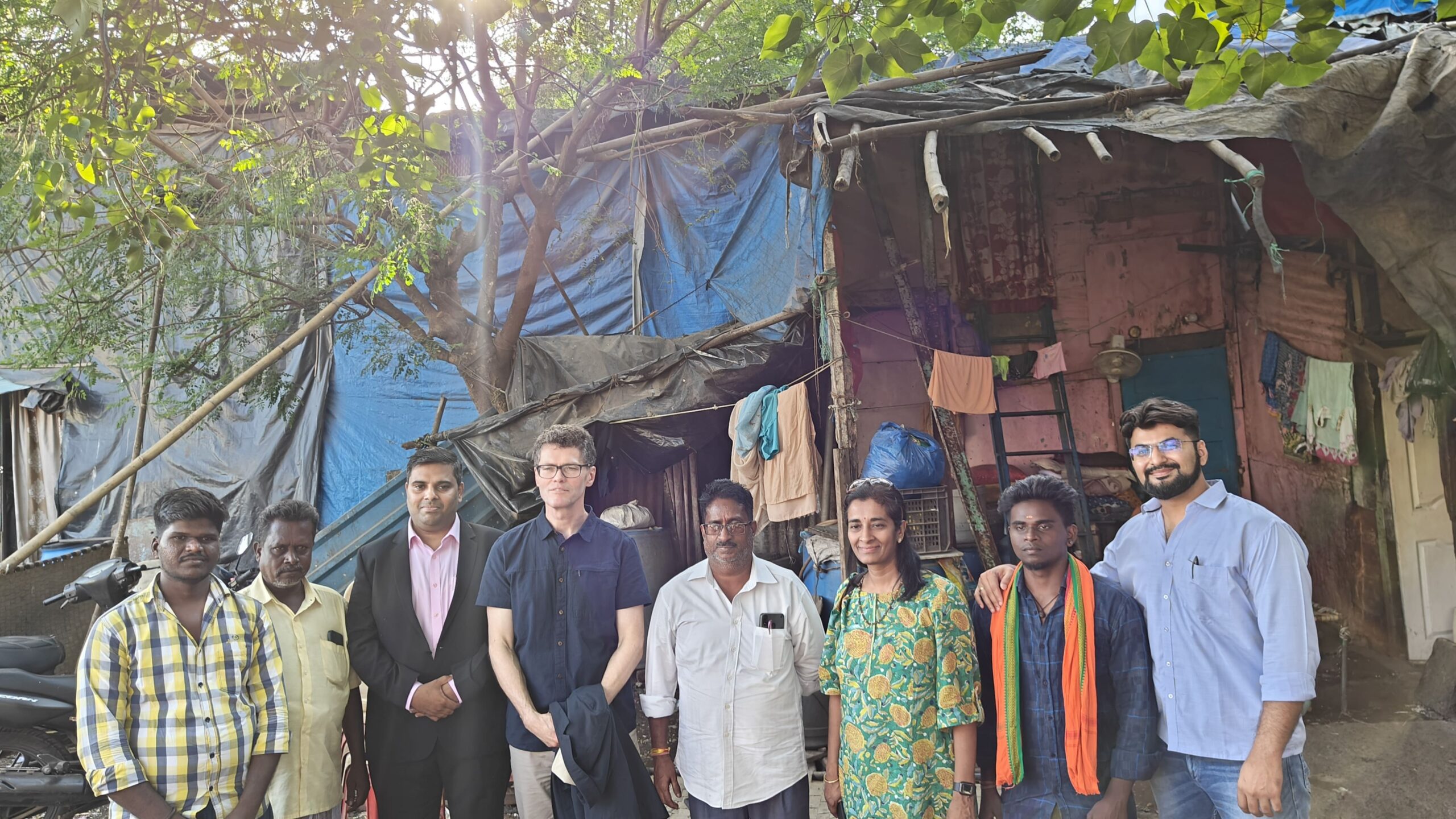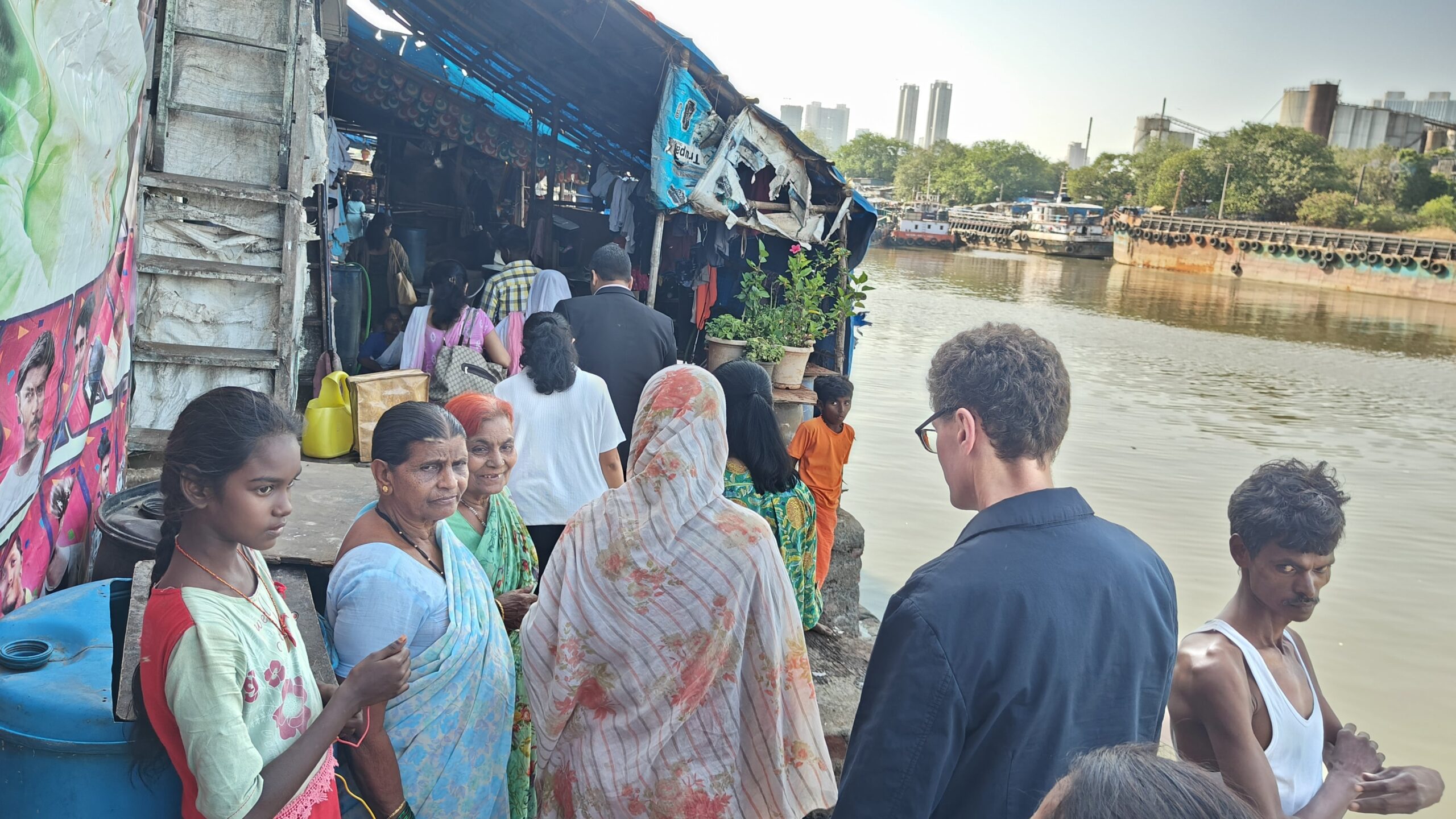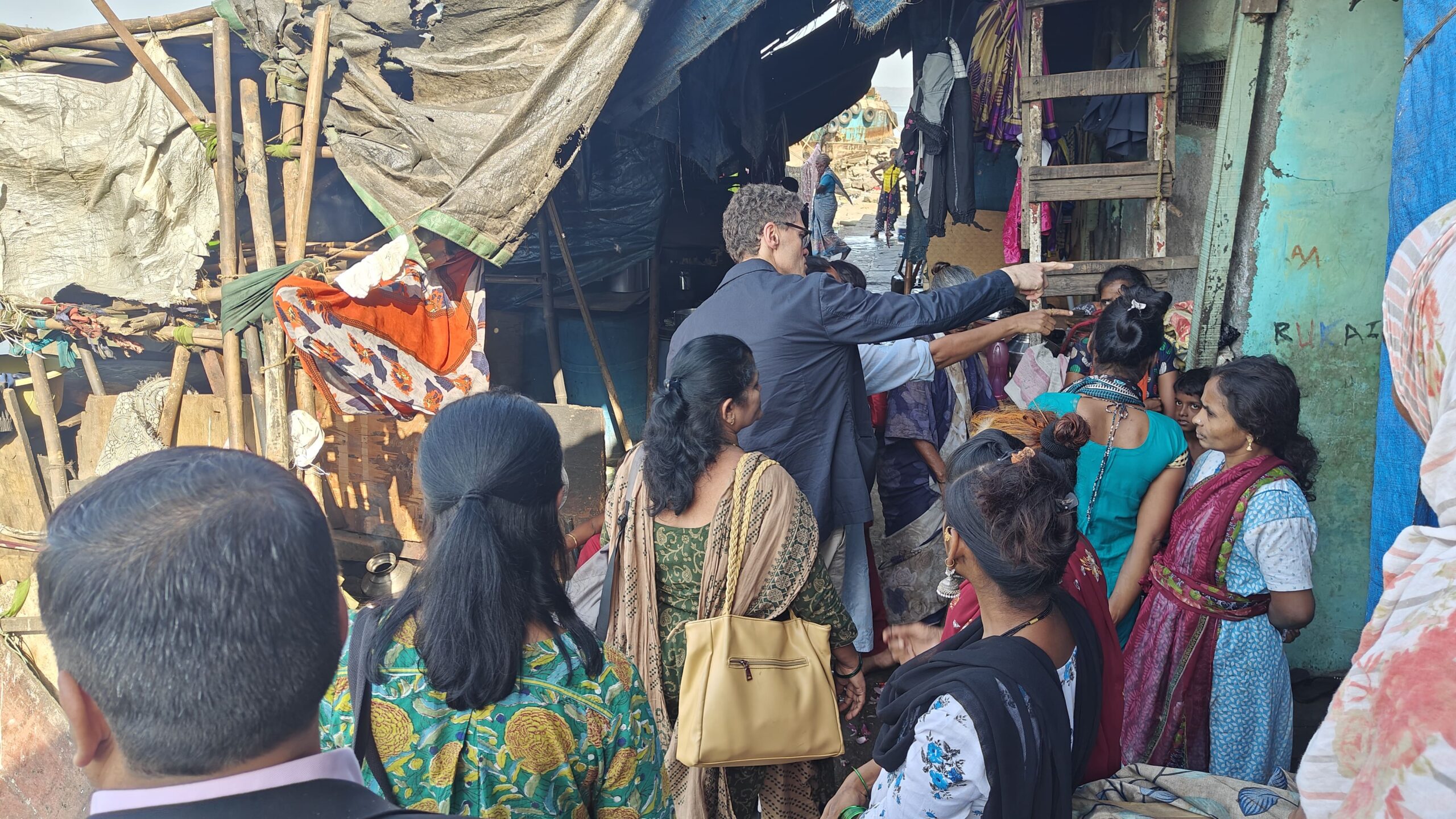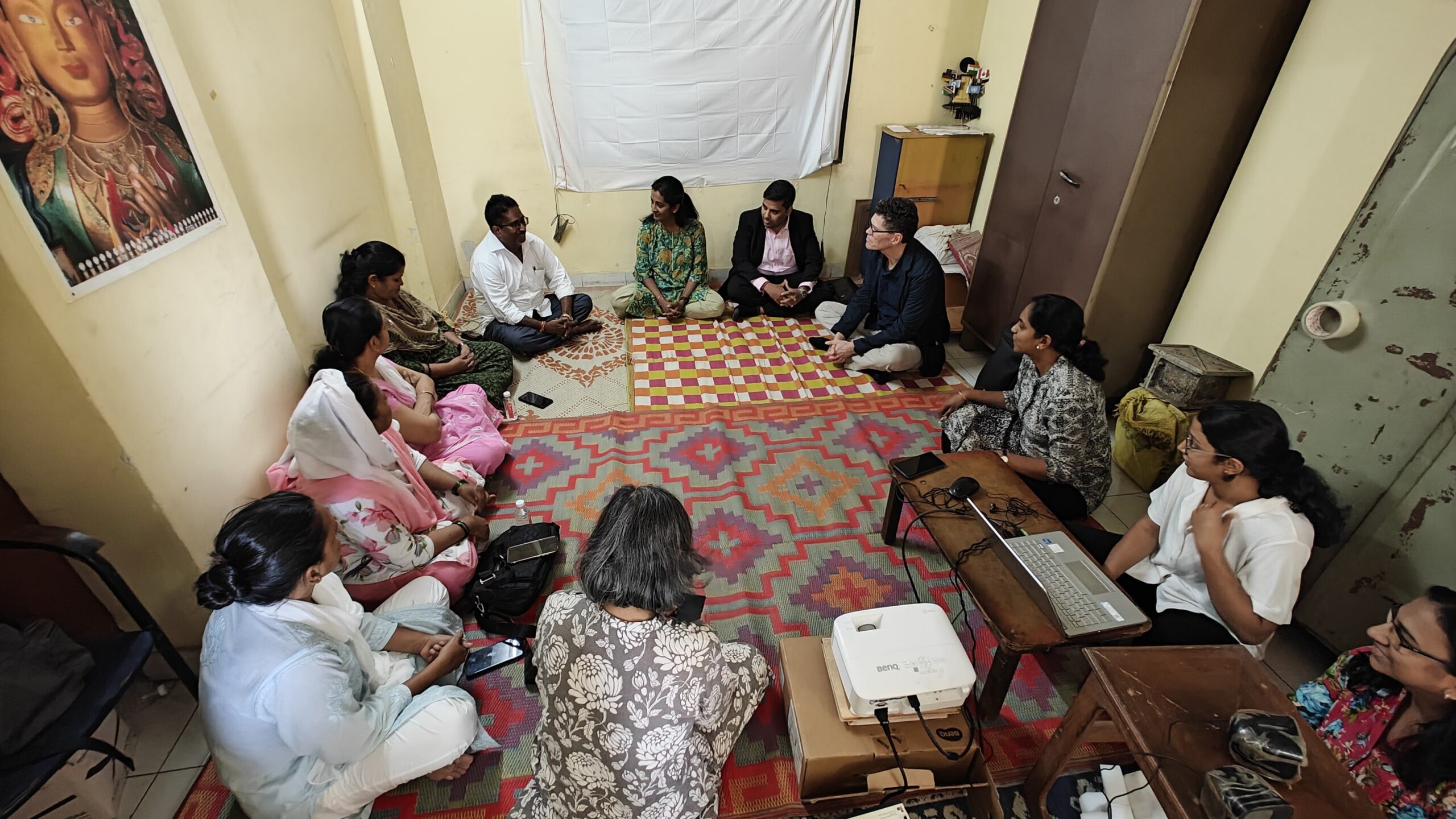Through the Lens of ROOH:
ARUP Team's Visit to Mumbai's Kaula Bandar Informal Settlement
The meeting was held at the Dharavi site office, where Jockin Arputham used to operate from, and which was inaugurated by Prince Charles himself. It was a fitting location for a meeting of such significance.
The team members of Roof Over Our Heads (ROOH) campaign, from Society for the Promotion of Area Resource Centres (SPARC), National Slum Dwellers Federation (NSDF) & Mahila Milan women, gathered together to meet Nigel Tonks, Sowmya Parthasarathy, and Shrirang Agrawal from ARUP. As everyone settled down, the meeting started with introductions, where NSDF & SPARC shared their accomplishments and undertakings, including their involvement in working in informality and the undefined tenancy scenario with respect to slums on railway land. The discussion then moved towards the growth of slums and the contradiction between providing better accommodation for slum inhabitants and enabling permanent residences for slum dwellers.
The ROOH team then, shared insightful videos of voices from the community and impressions from one of the learning labs under ROOH campaign, that was conducted in Surat, Gujarat, India. Presentation was made showcasing campaign’s framework and the learning labs carried out in 12 different informal settlements in India so far was done. The team shared their approach and methodology of conducting these labs to understand the choices people make in constructing their houses, the risks and vulnerabilities faced by them, and other issues related to tenure, eviction, ownership, and infrastructure utilities. They also shared the aspirations of people for building their houses if given an option for either retrofitting or incremental upgrade, along with their financial and coping mechanisms to build their houses. The team then shared their understanding of the micro markets from local vendors, contractors, and manufacturers about techniques to build houses in these informal settlements and usage of materials for elements such as roof, structure, skin, and plinth.
ARUP team along with SPARC, NSDF and Mahila Milan team, visited Kaula Bandar an informal settlement selected in Mumbai as the first Indian lab for the ROOH campaign.
Team interacted with people from community to understand their end perspectives and challenges with respect to housing, climate, and infrastructure. The ROOH team along with Mahila Milan women took the ARUP team for a transect walk to show them the streetscapes, the context of the settlement, and most vulnerable dwelling units selected for ROOH intervention. They also showed them the different materials used for constructions and provided them with an understanding of local technology & practices used for construction. As the team walked through the settlement, the discussion was directed upon the risks that the community faced inside their houses, which often forced them to stay outdoors and the costs of constructing the house and maintaining the same.
The meeting with ARUP team was insightful as they provided us with new perspectives. The discussion brought to light the challenges faced by slum dwellers and the importance of understanding the choices they make when building their homes. The ROOH campaign and the learning labs were discussed in detail, highlighting the importance of local
knowledge and community participation in designing interventions. The visit to Kaula Bandar provided an opportunity for the ARUP team to experience first-hand the reality of living in an informal settlement and understand the challenges faced by its residents. The meeting concluded with a testament to the fact that collective action and collaboration can bring about meaningful change and that the ARUP being a global consultancy firm is taking interest in these challenges faced by slum dwellers and as a way forward would like to contribute ROOH team in assessing the same.


